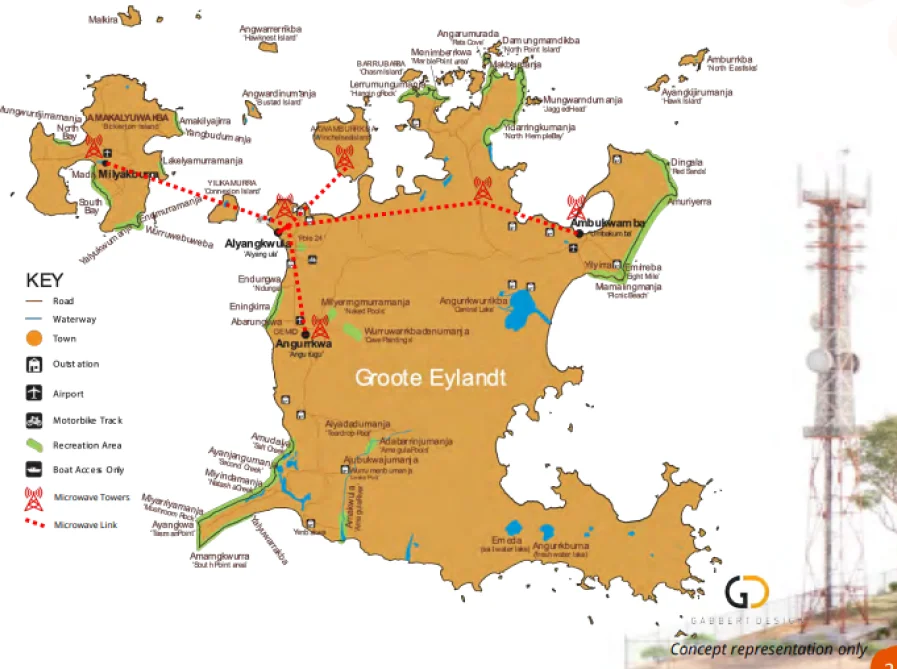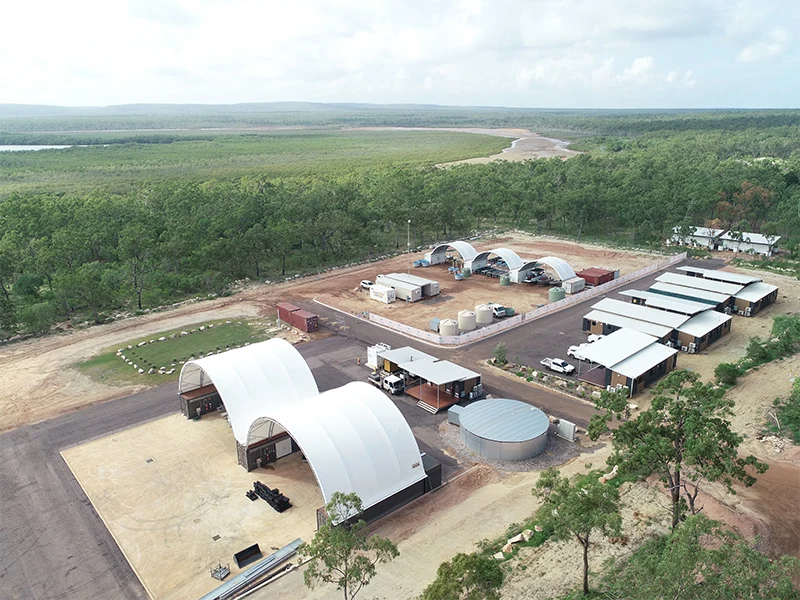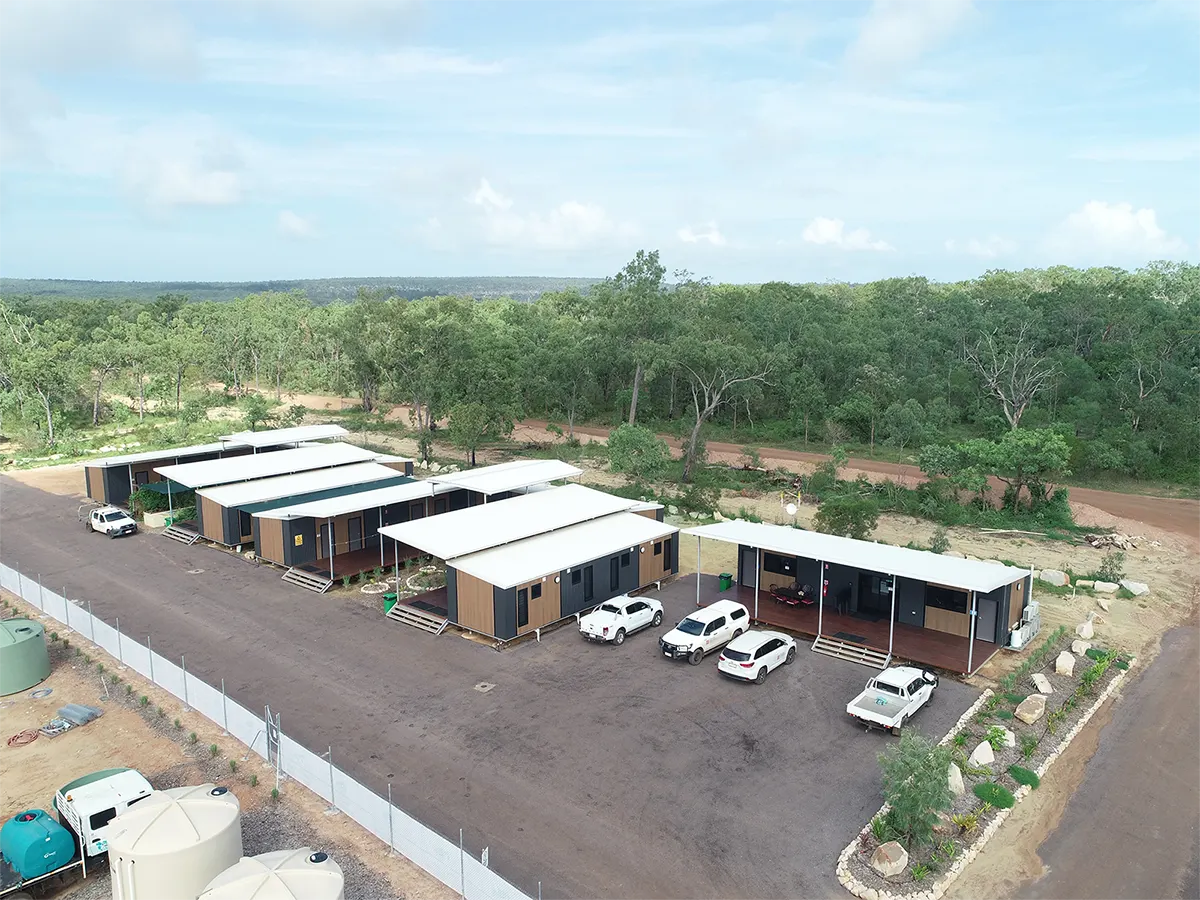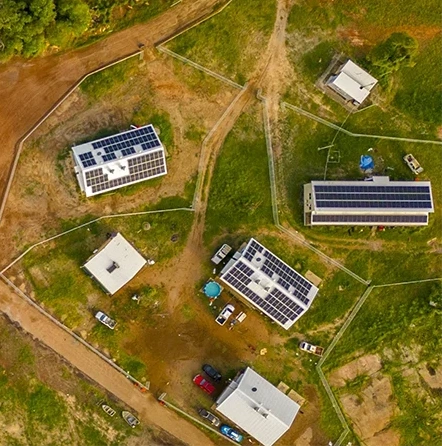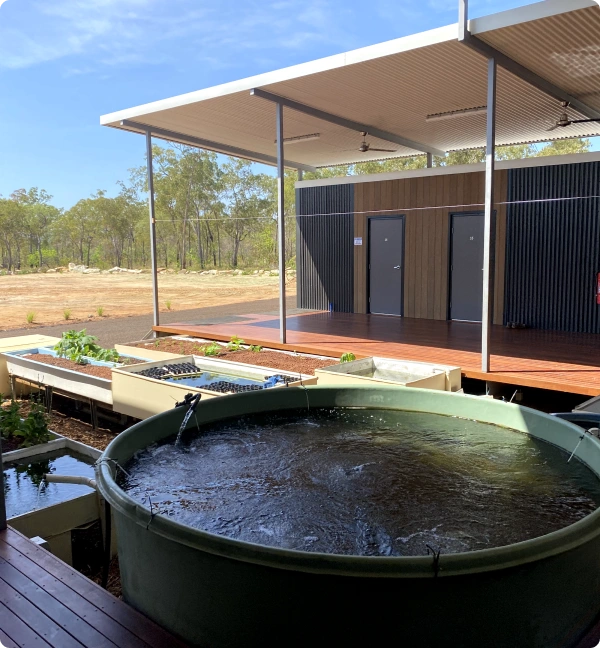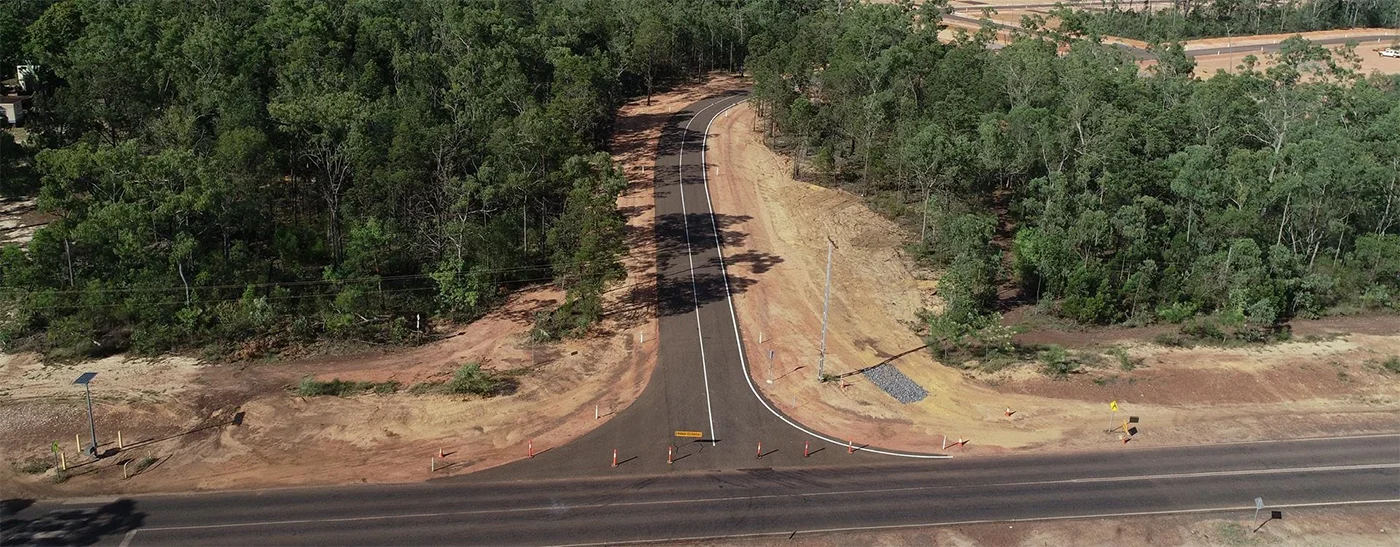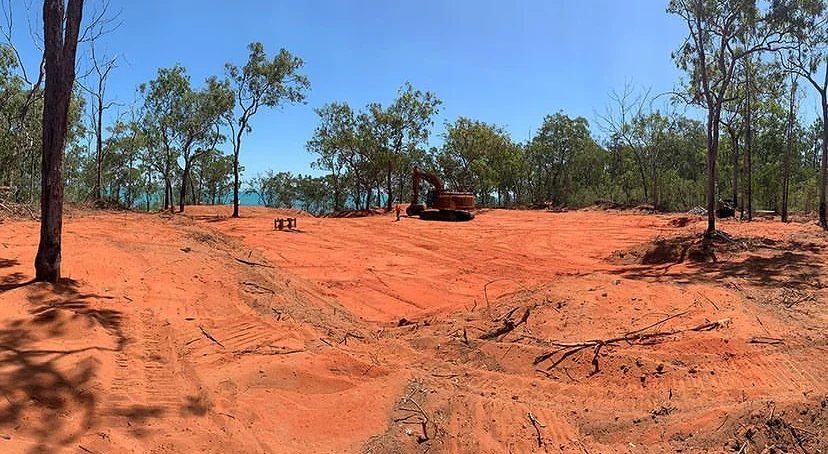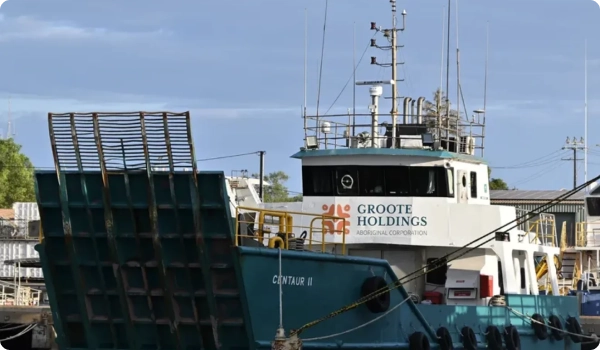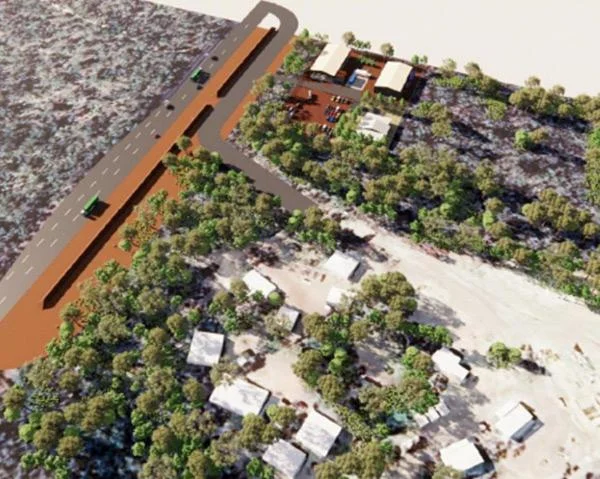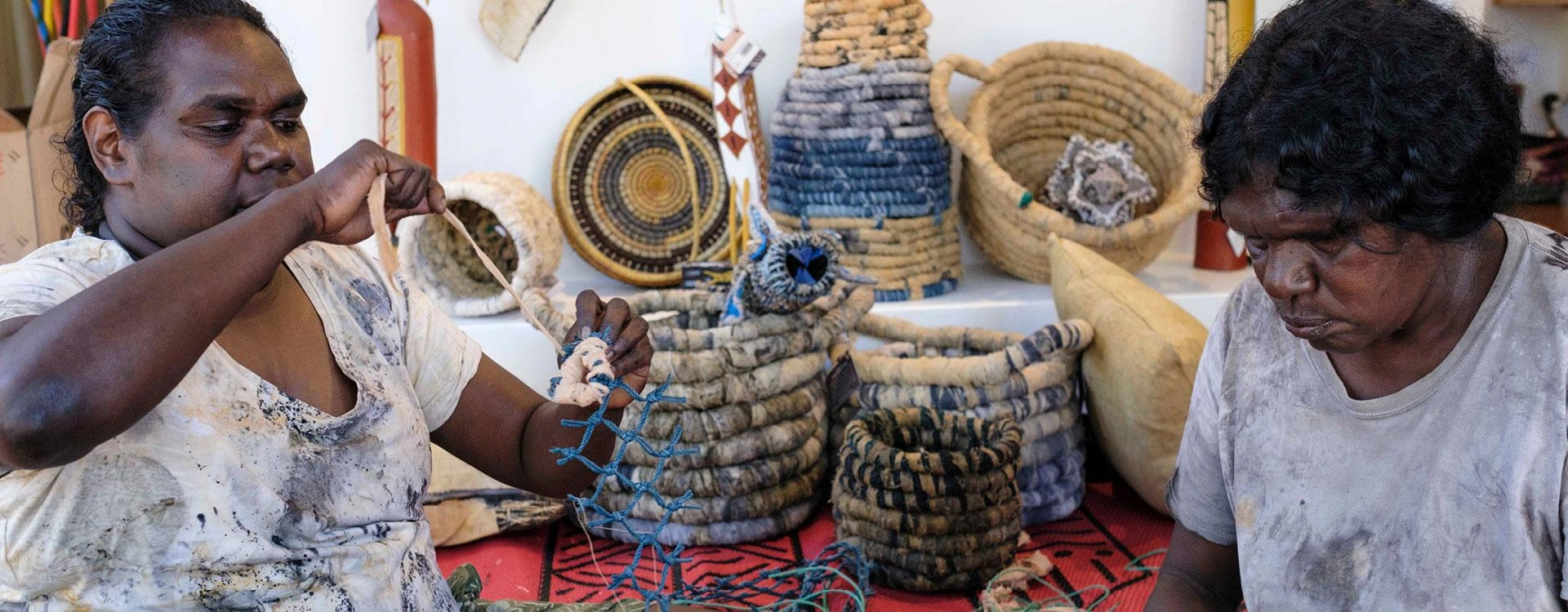Future Groote Cultural Economy
A unique region with significant potential for sea-based economic activities
The Groote Archipelago is a distinctive region brimming with potential for sea-based economic activities. Located in the Northern Territory on the western side of the Gulf of Carpentaria, this archipelago is a 25-minute flight south of Nhulunbuy on the Gove Peninsula. Groote Eylandt, Australia’s third-largest non-State island, offers a rich history dating back to its naming by explorer Abel Tasman in 1644. Home to approximately 2100 Anindilyakwa people across three main Indigenous townships—Angurugu and Umbakumba on Groote Eylandt, and Milyakburra on Bickerton Island—the archipelago also features several satellite communities associated with these vibrant communities.
The Groote Archipelago stands out as a unique and enviable gem in the natural environment, boasting a diverse ecosystem that includes beautiful beaches, spring water swimming holes, open woodlands, rainforests, red sand dunes, aqua waters, and ancient rock art. The surrounding pristine marine environment showcases unspoiled reef systems and a wealth of marine life, with clear waters providing easy access to encounters with large animals like dugong, crocodiles, turtles, and manta rays. Embrace the extraordinary beauty and potential of this one-of-a-kind region.

A return to the past –with a large scale aquaculture export future
Over the last decade, Asia’s economic rise and growing middle-class demand for high value seafood protein has outstripped available supply from regional wild harvest operations. The Anindilyakwa people are in a strong position to take advantage of the economic development opportunities afforded them by this increased demand and by their ready access to the pristine and fertile marine environment of the Groote Archipelago.
In 2006, Tasmanian Seafoods—holding the only trepang fishing licence of the NT—conducted trepang sea ranching trials at Umbakumba with AminjarrinjaEnterprises AC. The success of the trials demonstrated to the Traditional Owners the imperative to explore and establish a sustainable aquaculture industry capable of replacing their current reliance on mining royalty income. The ALC’s 15-year Strategic Plan reflects this desire and recommends the investment of current royalty income toward scoping out the potential to establish a seafood export industry through large-scale aquaculture ventures comprising hatcheries and safe ranching systems.
In 2016, the ALC co-invested with the Australian Institute of Marine Science to conduct a thorough baseline assessment of the whole marine environment surrounding the Groote Archipelago. This was followed by an extensive commercial analysis of what species of marine animals native to the area might be most commercially and sustainably farmed to underpin a profitable industry. The ALC is currently working with market and technical researchers to identify the largest aquaculture opportunities for the region. There are a number of possibilities being explored including: giant clams, fishing, shrimps, trepang, lobster, oyster and sea-plants.
The Future Groote Strategy recognises the potential for this trade to be renewed as a culturally appropriate and sustainable industry to help create a hybrid-economy for the Groote Archipelago. Similarly, the Northern Territory Agribusiness and Aquaculture Strategy will acknowledge the aspirations of Aboriginal Territorians to develop Aboriginalled aquaculture enterprises that create jobs and benefits across the Top End Saltwater Indigenous Communities.
Funding
Funding of these projects will come from a number of known sources.
With worldwide demand for batteries increasing GHAC are sitting on a substantial asset base to leverage economic development.
